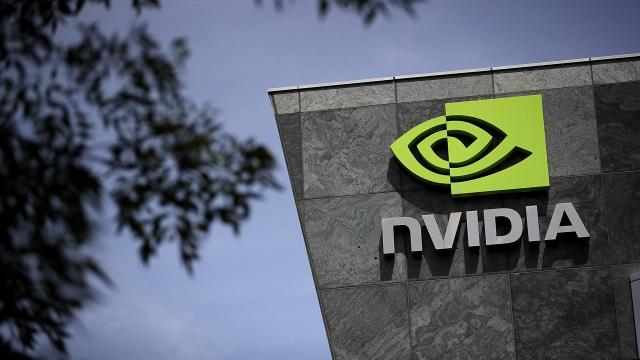When Nvidia announced back in September that it had reached a deal to buy Arm Limited for $US40 ($51) billion, a regulatory investigation was just a matter of time. And lo, the UK’s Competition and Markets Authority (CMA) has begun soliciting third-parties to weigh in on how the deal might affect competition ahead of an investigation slated to start later this year.
It hasn’t exactly been a good time for giant tech mergers — and Nvidia buying Arm counts as an extremely big merger with a far-reaching impact. For starters, Arm’s CPU architecture is in almost every gadget you use on a daily basis, while Nvidia is the king of GPUs. Even though Arm technically doesn’t make chips itself, the fact that it licenses its tech to other major players like Apple, Intel, Samsung, Qualcomm, and Huawei, means very few companies could actually buy Arm without triggering regulatory bodies’ anti-trust radars.
[referenced id=”1442990″ url=”https://gizmodo.com.au/2020/09/nvidia-buying-arm-means-nothing-for-apple-but-maybe-good-things-for-nintendo/” thumb=”https://gizmodo.com.au/wp-content/uploads/2020/09/15/mwem6ewfymzr4ecsfnkj-300×169.jpg” title=”Nvidia Buying Arm Means Nothing for Apple, but Maybe Good Things for Nintendo” excerpt=”After weeks of rumours, Nvidia announced last night that it was ready to plop down $US40 ($51) ($US55 ($71)) billion to acquire Arm Limited, better known as that company that designs Arm architecture behind CPUs in practically every gadget you use on a day-to-day basis.”]
Given all this, the CMA says it plans to look into the Nvidia-Arm deal’s impact on competition within the UK. Specifically, the CMA is interested in whether post-acquisition, Arm would have “an incentive to withdraw, raise prices, or reduce the quality of its IP licensing services to Nvidia’s rivals.” Back in September, Nvidia had pre-emptively tried to assuage regulatory bodies by promising that it would keep Arm based in the UK, as well as commit to its “open-licensing model” and “global customer neutrality.” But it doesn’t appear that the CMA is taking those promises at face value.
“The chip technology industry is worth billions and critical to many of the products that we use most in our everyday lives,” said Andrea Coselli, chief executive of the CMA, in a statement. “We will work closely with the other competition authorities around the world to carefully consider the impact of the deal and ensure that it doesn’t ultimately result in consumers facing more expensive or lower quality products.”
In all fairness, Nvidia is possibly one of the few tech giants out there that could make a strong case for buying Arm. Softbank, which bought Arm for $US31 ($40) billion in 2016, didn’t undergo as much regulatory scrutiny because as a telecom company, it doesn’t really make its own gadgets or chipsets. Softbank reportedly reached out to Apple as a potential buyer, but given that many of Arm’s licensees are Apple rivals that would’ve been a giant no-no. (Plus, Apple wasn’t interested.) Because Nvidia’s main cash cow is GPUs, it can theoretically make the argument that it wouldn’t be as damaging to global competition. Theoretically.
Back in October, Arm co-founder Hermann Hauser had some scathing words regarding the deal, saying the government should block the merger as Nvidia buying the company would end Arm’s neutrality and give birth to yet another U.S. tech monopoly. “Nvidia has an opportunity to become the quasi monopoly supplier of microprocessors to the world,” Hauser told the Guardian. “This [deal] will give Nvidia a dominant position in all processor segments and create another U.S. tech monopoly which has created so much angst in Britain when the country worries about the surreptitiously controlling influence Google, Facebook, Netflix, and Amazon has on the UK economy.”
In any case, this isn’t an issue that’s going to be resolved soon. Nvidia’s original announcement said it expects the entire process to take about 18 months. In addition to the UK, it’ll need to receive regulatory approval from China, the EU, and the U.S. In the UK, the CMA is giving third-parties until Jan. 27 to submit their comments on the deal. So strap in folks, it’s going to be a long, regulatory ride.
